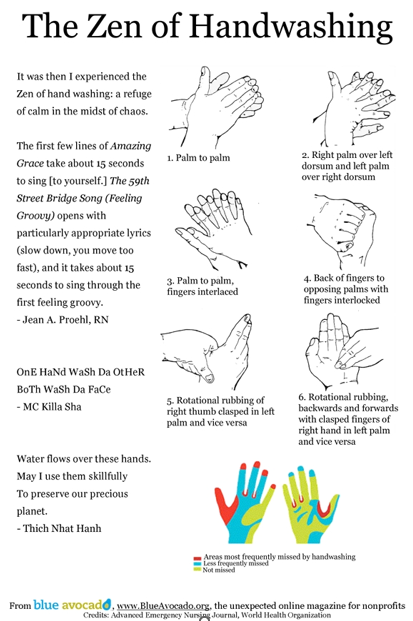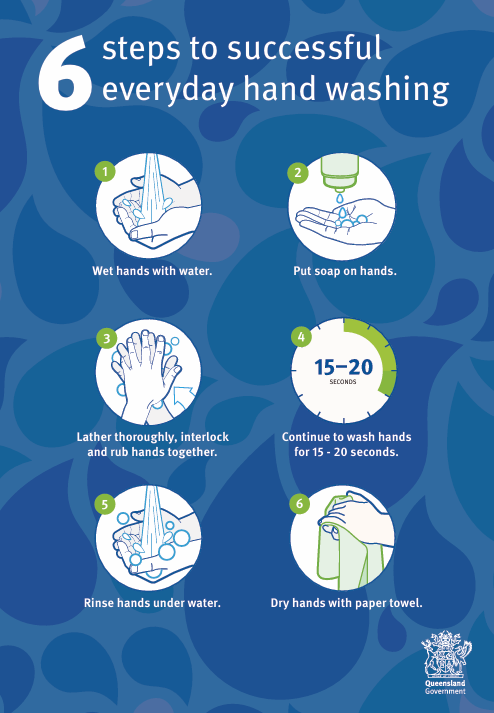20 SECONDS...
Scrubbing your hands for at least 20 seconds removes more germs from hands than washing for shorter periods
Keep it Dry
wet hands are 1,000 times more likely to transfer and pick up germs than dry ones.


The Mission:
Educating the food service industry on the critical importance of proper handwashing practices to ensure health and safety for all.


Washing Hands Prevents Illnesses and the Spread of Infections to Others
Handwashing with soap removes germs from hands. This helps prevent infections because:
People frequently touch their eyes, nose, and mouth without even realizing it. Germs can get into the body through the eyes, nose and mouth and make us sick.
Germs from unwashed hands can get into foods and drinks while people prepare or consume them. Germs can multiply in some types of foods or drinks, under certain conditions, and make people sick.
Germs from unwashed hands can be transferred to other objects, like handrails, tabletops, or toys, and then transferred to another person's hands.
Teaching people about handwashing helps them and their communities stay healthy. Handwashing education in the community:
Reduces the number of people who get sick with diarrhea by 23-40%
Reduces diarrheal illness in people with weakened immune systems by 58%
Reduces respiratory illnesses, like colds, in the general population by 16-21%
Reduces absenteeism due to gastrointestinal illness in schoolchildren by 29-57%
Handwashing
When to Wash Your Hands
Proper Handwashing.
Handwashing Sign
Minimize Bare Hand Contact
Even after washing our hands, we must minimize bare hand contact with ready to eat food.